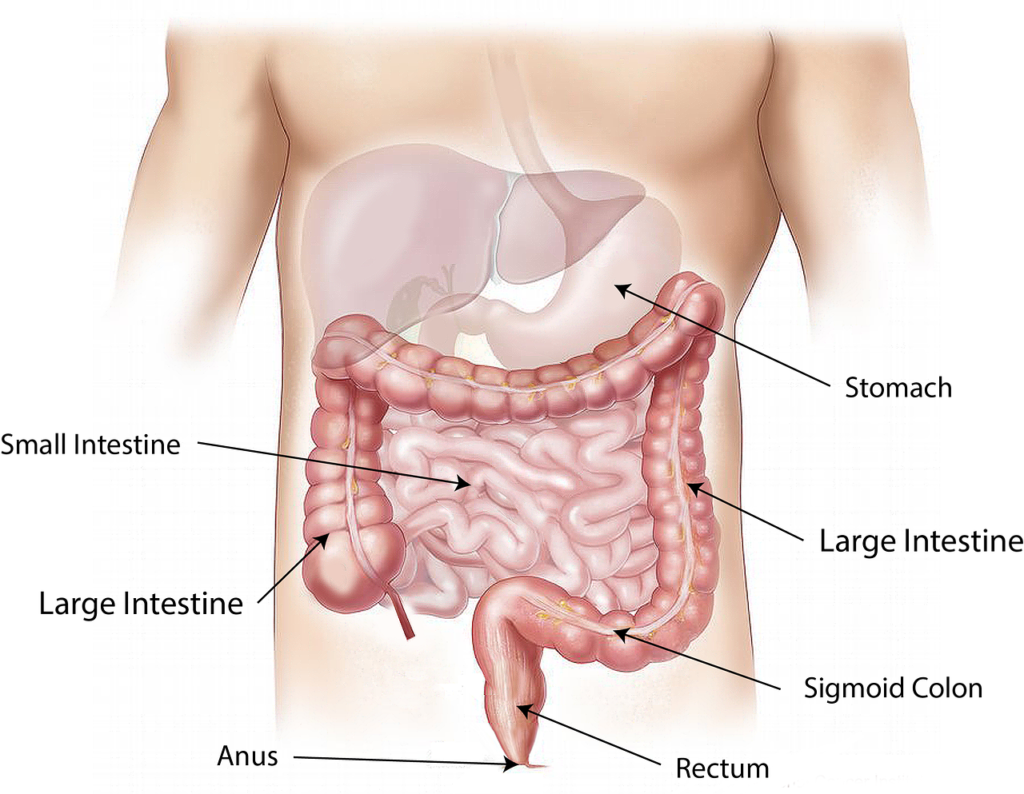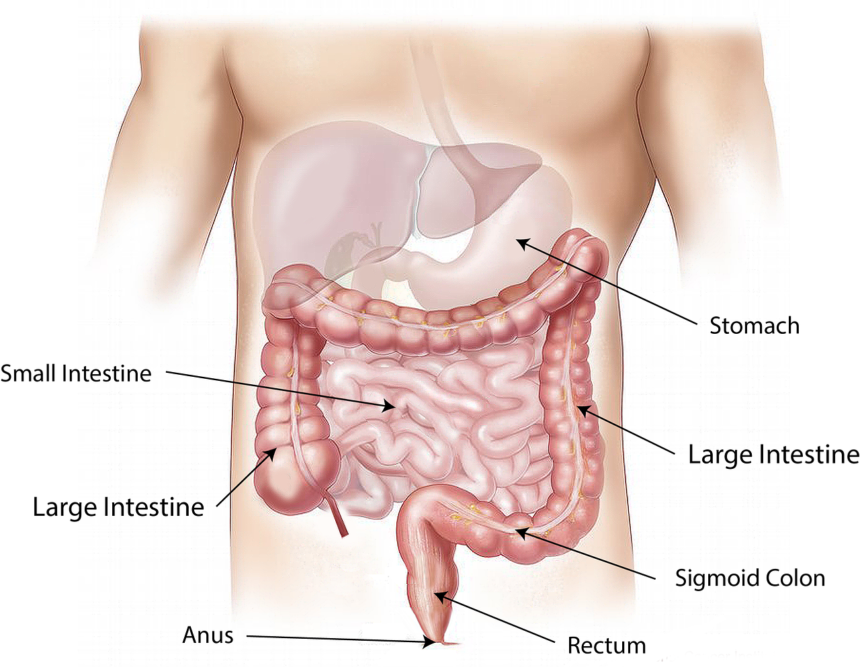Colon in Abdomen: Understanding the Function and Importance of the Large Intestine
The human body is an incredibly complex machine, with each organ playing a vital role in maintaining our health and well-being. The colon, also known as the large intestine, is one such organ that plays an essential role in the digestive process. In this blog post, we will explore what the colon is, its function in the body, and why it is crucial for our overall health.

What is the Colon?
The colon is the final part of the digestive system, located in the abdomen. It is a long, muscular tube that measures about 5 feet in length and 2.5 inches in diameter. The colon is divided into four main sections: the ascending colon, the transverse colon, the descending colon, and the sigmoid colon. Its primary function is to remove water, electrolytes, and other nutrients from the digested food that passes through it and turn it into feces for elimination from the body.
Function of the Colon
The colon has several important functions in the body, including:
Absorption of Water:
The colon absorbs the remaining water and electrolytes from the undigested food, which helps in maintaining the body’s hydration levels.
Formation of Feces:
The colon compresses the undigested food into feces and eliminates it from the body through the rectum and anus.
Absorption of Nutrients:
The colon also absorbs certain nutrients, such as vitamin K, produced by the bacteria present in the colon.
Immune System Support:
The colon plays a vital role in supporting the body’s immune system by hosting a large number of beneficial bacteria, which help in fighting off harmful bacteria and viruses.
Importance of the Colon
The colon is a critical organ for our overall health and well-being. Any dysfunction or disease of the colon can cause severe health problems. Here are some of the most common colon-related health issues:
Colon Cancer:
Colon cancer is a severe health condition that arises when abnormal cells grow in the colon. It is the third most common cancer in the world and can be fatal if left untreated.
Irritable Bowel Syndrome (IBS):
IBS is a chronic gastrointestinal disorder that affects the colon’s function, causing symptoms such as abdominal pain, bloating, and diarrhoea.
Ulcerative Colitis:
Ulcerative colitis is a chronic inflammatory bowel disease that affects the colon’s lining, leading to abdominal pain, diarrhoea, and rectal bleeding.
Diverticulitis:
Diverticulitis is a condition in which small pouches called diverticula form in the colon’s lining and become inflamed, leading to abdominal pain, fever, and constipation.
Common Colon Procedures and Tests
To maintain the health of your colon, it is essential to undergo regular screening tests to detect any colon-related health issues early. Here are some common colon procedures and tests that you may need to undergo:
Colonoscopy:
A colonoscopy is a medical procedure in which a flexible tube with a camera is inserted into the rectum to examine the entire colon. This procedure can detect colon cancer, polyps, and other colon-related health issues.
Virtual Colonoscopy:
A virtual colonoscopy is a non-invasive imaging test that uses computed tomography (CT) to produce detailed images of the colon. This test is an alternative to traditional colonoscopy and can detect colon cancer, polyps, and other colon-related health issues.
Stool Test:
A stool test is a simple test in which a small sample of feces is analyzed for the presence of blood, bacteria, and other signs of colon-related health issues.
Sigmoidoscopy:
A sigmoidoscopy is a medical procedure in which a flexible tube with a camera is inserted into the rectum to examine the lower part of the colon. This procedure can detect polyps and other colon-related health issues.
Barium Enema:
A barium enema is a medical procedure in which a liquid containing barium is inserted into the rectum, followed by an X-ray to produce detailed images of the colon. This test can detect colon cancer, polyps, and other colon-related health issues.
Tips for Maintaining a Healthy Colon
Besides undergoing regular screening tests and procedures, here are some tips for maintaining a healthy colon:
Eat a Healthy Diet:
Eating a balanced diet that is high in fibre, fruits, and vegetables can help keep your colon healthy. Fibre helps to promote regular bowel movements and reduce the risk of colon-related health issues.
Stay Hydrated:
Drinking plenty of water and other fluids can help maintain the right balance of electrolytes in the body, which is essential for colon health.
Exercise Regularly:
Regular exercise can help promote regular bowel movements and reduce the risk of colon-related health issues.
Quit Smoking:
Smoking can increase the risk of colon cancer and other colon-related health issues. Quitting smoking can help improve your overall health and reduce the risk of colon-related health issues.
Limit Alcohol and Red Meat Consumption:
Consuming too much alcohol and red meat can increase the risk of colon-related health issues. Limiting your alcohol and red meat consumption can help maintain a healthy colon.
Maintain a Healthy Weight:
Being overweight or obese can increase the risk of colon-related health issues. Maintaining a healthy weight through a balanced diet and regular exercise can help reduce the risk of colon-related health issues.
Conclusion
The colon is an essential organ in our body that plays a crucial role in the digestive process and our overall health. Maintaining a healthy colon is vital for preventing colon-related health issues, such as colon cancer, IBS, ulcerative colitis, and diverticulitis. Eating a healthy diet, staying hydrated, exercising regularly, quitting smoking, limiting alcohol and red meat consumption, and maintaining a healthy weight are some of the simple ways to keep your colon healthy and functioning correctly. If you experience any colon-related symptoms, such as abdominal pain, constipation, or diarrhoea, consult your doctor immediately for proper diagnosis and treatment.











